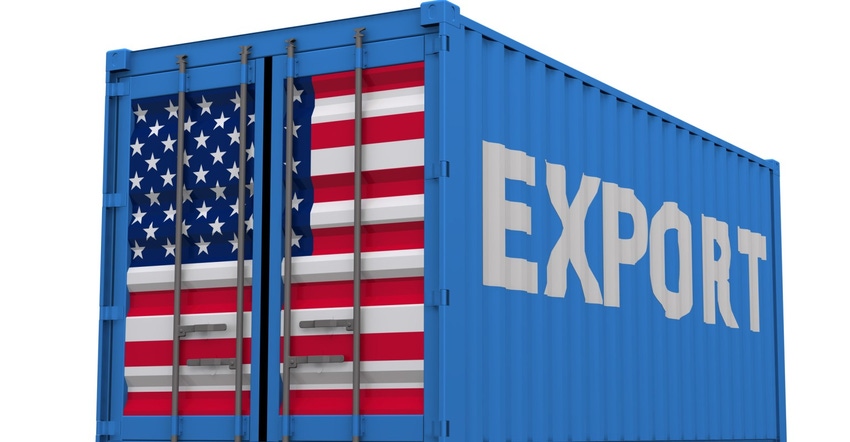Economist stresses importance of trade with Japan
Red meat product exports of $3.92 billion represent about 30% of $13 billion in total U.S. ag exports to Japan.
February 27, 2019

The importance of Japan as a trading partner for U.S. agriculture was the focus of a panel discussion at the U.S. Department of Agriculture’s recent Agricultural Outlook Forum in Arlington, Va.
U.S. Meat Export Federation (USMEF) economist Erin Borror explained that Japan is the leading value destination for both U.S. beef and U.S. pork, with 2018 exports expected to reach $2.1 billion and $1.65 billion, respectively, when year-end data are available. Borror also cautioned, however, that the competitive terrain in Japan has gotten steeper for U.S. red meat due to Japan’s preferential trade agreements with Australia, the European Union, Canada, New Zealand, Mexico and Chile, and this situation will worsen unless the U.S. secures similar access terms with Japan.
Borror noted that U.S. beef export value per head of fed slaughter averaged a record $320.72 in 2018, up 14% year over year and shattering the previous high of $300.36 set in 2014. Japan accounts for one-fourth of this total, or $82.75 per head. The ratio is similar for U.S. pork export value, which averaged $51.46 per head slaughtered in 2018, with Japan accounting for $13.18, or 26%, of the total per-head value.
She also explained that beef and pork make up a significant portion of U.S. agricultural exports to Japan. The projected $3.92 billion in combined red meat product exports represent about 30% of the $13 billion in total U.S. agricultural exports to Japan, second only to grains and feeds.
Furthermore, USMEF suggests that Japan’s red meat consumption is likely to expand at a faster rate once the benefits of lower import duties are passed along to consumers. In South Korea, for example, USMEF said the tariff rate on U.S. beef has dropped by more than half since 2012 under the Korea-U.S. Free Trade Agreement, and U.S. beef enjoys a tariff rate advantage over its competitors. Most pork from the U.S. and other major suppliers enters Korea at zero duty.
“Red meat is now more affordable and accessible for Korean consumers, who have responded enthusiastically, with per capita consumption setting new records,” USMEF noted. “ A similar development in Japan will only benefit the U.S. beef and pork industries if they are on a level playing field with competitors.”
Potential losses substantial
Without a U.S.-Japan trade agreement, potential losses for the U.S. meat industry are substantial, according to USMEF.
On a per-head basis, Borror estimates that lost export opportunities for U.S. beef will reach $18.70 by 2023 and $42 by 2028. For pork, the per-head loss is projected to be $4.55 by 2023 and $7.06 by 2028.
U.S. exporters are already feeling the effects of tariff disadvantages in Japan of 11 percentage points for beef cuts and 6.4 percentage points for beef tongues and skirts. For pork, the most immediate impact is on processed and value-added products, where tariffs are quickly being phased to zero. This is already eroding U.S. market share for important products such as ground seasoned pork, USMEF said. Japan’s imports of U.S. ground seasoned pork were valued at $288 million last year.
“Unless the U.S. and Japan can quickly reach a trade agreement, lost opportunities will mount as Japanese companies seek more value-added, further-processed products from suppliers such as the EU and Mexico,” Borror explained. “Decisions that are being made today will transform the business, and without clear indications that the U.S. and Japan will reach an agreement, the U.S. industry is likely to suffer permanent losses in market share and related investment.”
Borrer continued, “Japan is irreplaceable as a trading partner, given its demand for high-value chilled pork cuts, and it is seen as an increasingly important market for value-added pork. At a time when U.S. companies are looking to produce more value-added and branded products, the industry cannot afford to miss these opportunities in Japan.”
Beyond the meat industry
These lost export opportunities also carry serious implications for U.S. agriculture and the rural economy. Exports to Japan are estimated to directly support more than 4% of the jobs in the meat packing and processing industry. The absence of a trade agreement will also have an annual cost of $5.2 billion in direct economic losses to other businesses and industries in the top 15 meat packing and processing states. Over the next 10 years, an estimated 23,600 jobs outside the meat industry would be lost in those 15 states.
You May Also Like


.png?width=300&auto=webp&quality=80&disable=upscale)
